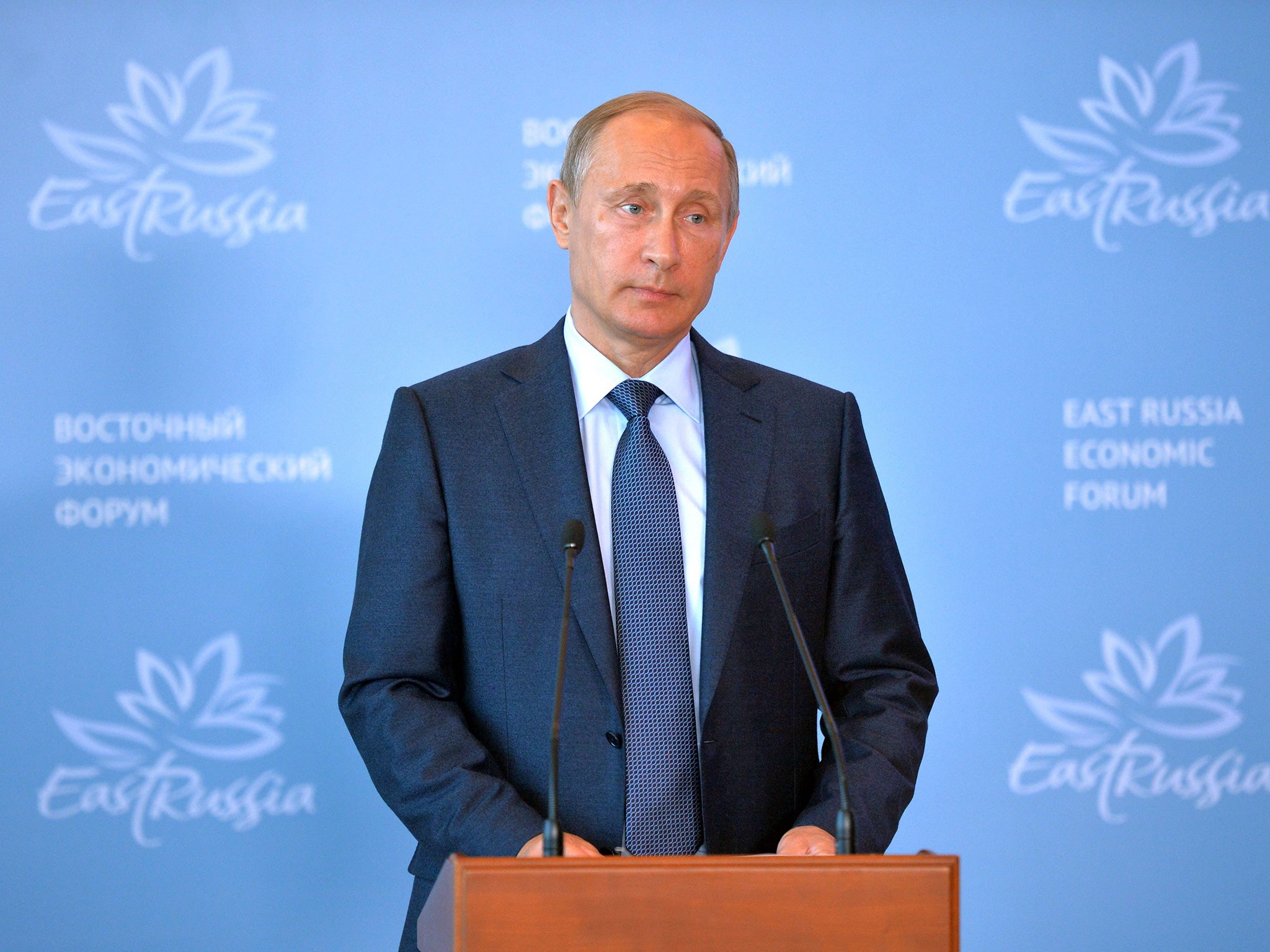BBC to face down Vladimir Putin with plan for new World Service Russian TV channel
The move is a direct challenge to Russia Today, the Kremlin-funded television service found guilty of impartiality breaches

Your support helps us to tell the story
From reproductive rights to climate change to Big Tech, The Independent is on the ground when the story is developing. Whether it's investigating the financials of Elon Musk's pro-Trump PAC or producing our latest documentary, 'The A Word', which shines a light on the American women fighting for reproductive rights, we know how important it is to parse out the facts from the messaging.
At such a critical moment in US history, we need reporters on the ground. Your donation allows us to keep sending journalists to speak to both sides of the story.
The Independent is trusted by Americans across the entire political spectrum. And unlike many other quality news outlets, we choose not to lock Americans out of our reporting and analysis with paywalls. We believe quality journalism should be available to everyone, paid for by those who can afford it.
Your support makes all the difference.The BBC is proposing to set up a new World Service satellite news channel for Russian speakers, in a direct challenge to Russia Today, the Kremlin-funded television service found guilty of impartiality breaches.
The World Service would expand services in Russia, North Korea, the Middle East and other territories where state-sponsored broadcasters are denying audiences an impartial and independent source of news.
Tony Hall, the BBC Director-General, will set out plans to enhance the World Service’s role as “the UK’s most important cultural export”, in a speech on 7 September, in which he will deliver the corporation’s response to Government proposals which could radically reduce its size and scope.
The World Service, which reaches a global audience of 210m a week on television, radio and digital has faced blocking, jamming and prohibitive licensing rules in countries including Russia, Iran and China.
The BBC believes it has a vital role in upholding global democracy through the delivery of impartial and accurate news, as a counterweight to state-backed broadcasters like Al Jazeera, China Central Television and RT (previously Russia Today) which command huge resources and now broadcast to viewers in the UK.
Last year President Putin ploughed £183m into RT, which claims to have a worldwide reach of 700 million. The channel was threatened with statutory sanctions by Ofcom after breaching the broadcasting code on four counts of impartiality over its coverage of the Ukraine crisis. It was RT’s 10th breach of Ofcom’s code in nine years.
The World Service ended direct broadcasting to Russia amid swingeing cuts in 2011, a move criticised for allowing Russian propaganda to spread unchecked, three years before the corporation took over direct funding of the service from the Foreign Office.
Now the BBC is asking the Government to consider making additional public funds available for a significant investment in the World Service, to help it produce “impartial news that also shines a positive light on this country’s place in the world.”
The BBC plan includes a new satellite TV service for Russian speakers or a bigger digital presence on platforms such as YouTube and the Russian equivalent Rutube.
The World Service is also proposing a seven day a week daily news programme for North Korea on Short Wave. The BBC’s Arabic Service will offer more regional content to better serve its audiences with increased coverage of North Africa and the Middle East. A news service for Ethiopia and Eritrea on Medium Wave and Short Wave is also planned.
Despite accepting £750m of cuts in a shotgun licence fee deal, BBC bosses believe ministers will be sympathetic to additional public spending for the World Service. Before being named Culture Secretary, John Whittingdale said it was “frightening” that the World Service was being “outgunned massively by the Russians and the Chinese”.
A BBC source said: “This is about Britain’s place in the world. It is above the politics of the debates about the BBC’s future. Other news outlets are growing globally, and many do not share our traditions and values. The BBC has never been impartial on the importance of democracy and a free press. We have a strong commitment to uphold global democracy though accurate, impartial and independent news. That’s why the BBC World Service is such a trusted and in some cases revered news source. There should no longer be any no-go countries for the World Service – it is Britain’s impartial voice to the world.”
The BBC spent £254m on the World Service last year, 6% of the licence fee. The source said the BBC accepted “that there are limits to how much British households can be expected to fund news for other countries around the world.”
“Support for this essential expansion is something the BBC would look to discuss with the Government during the upcoming Spending Review. In addition, the BBC would seek to match any increase in public funding for the World Service with external income that it can generate from its other global news services, such as sponsorship or advertising, during the next Charter. “
BBC World Service proposals
A satellite TV service for Russian speakers or a bigger digital on platforms such as YouTube and the Russian equivalent Rutube, plus TV bulletins for neighbouring Eastern Europe states
A seven day a week daily news programme for North Korea on Short Wave.
BBC Arabic Service will offer more regional content to better serve its audiences with increased coverage of North Africa and the Middle East.
A news service for Ethiopia and Eritrea on Medium Wave and Short Wave.
ends
Join our commenting forum
Join thought-provoking conversations, follow other Independent readers and see their replies
Comments